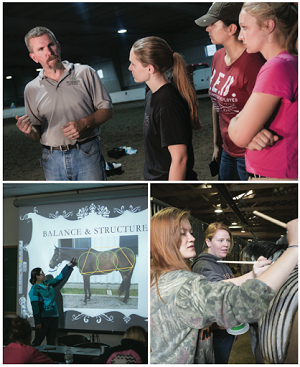Spotlight Career for Bachelors of Biology Students: Veterinary Medicine
 A recent study conducted by Payscale.com, surveyed over two million workers on whether or not they felt their work contributed to making the world a better place. They compared this data with the annual income across 24 job categories and over 500 unique job titles and measured the overlap of job meaning and salary to come to some interesting results.
A recent study conducted by Payscale.com, surveyed over two million workers on whether or not they felt their work contributed to making the world a better place. They compared this data with the annual income across 24 job categories and over 500 unique job titles and measured the overlap of job meaning and salary to come to some interesting results.
One of the highest ranking jobs on the list was a veterinarian, with 85 percent of professionals in the field reporting that they felt their job was highly meaningful, and 70 percent reporting high job satisfaction.
In addition to being a meaningful career, being a veterinarian is also a high-paid position, with the Bureau of Labor Statistics estimating an average annual income of $84,460.
William Woods University Bachelors in Biology students interested in becoming veterinarians can enter into our Pre-Vet Preparation Concentration. One of the fastest growing programs at William Woods, with 50 percent increase in students last year, this concentration provides students with the coursework and hands-on experience to prepare them for graduate school in Veterinary Medicine.
Projected to grow 12 percent by 2022, neither a high nor low percentage in terms of job outlook, finding a job as a veterinarian can be competitive. However, those candidates with prior experience and training have the greatest job opportunity.
William Woods University equips B.S. in Biology majors who aspire to be veterinarians with the tools for success, with a 100 percent acceptance rate for students who have applied for advanced professional degrees in veterinary medicine.
“Our success rate, especially with veterinary school, is historically high,” explained Dr. Nicholas Pullen, Professor of Biology at William Woods University, “In my opinion a lot of this is due to two main factors: capable science students and intense advising.”
Pre-vet students interested in gaining hands on experience, particularly with large animals, can take advantage of the recently built Center for Equine Medicine, as previously discussed in a recent Look Into Equestrian Studies blog.
Students also have the opportunity to get involved with the Pre-Veterinary Club on campus, gaining experience through volunteering at and touring relevant animal medicine locations and allowing students to get to know peers with similar passions.

